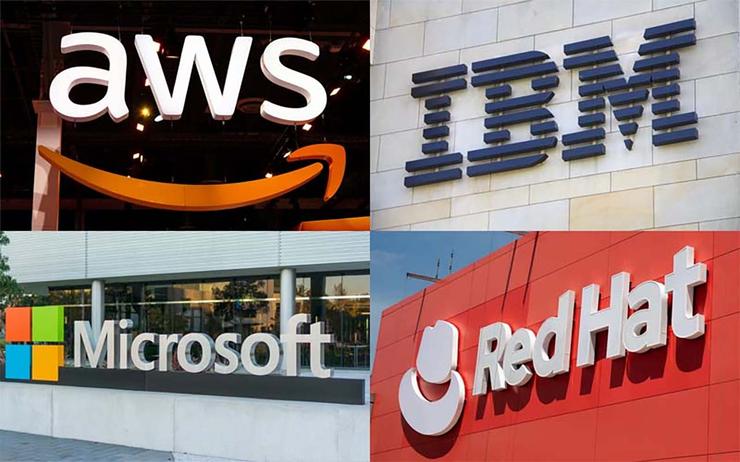 Credit: Supplied
Credit: Supplied
Amazon Web Services (AWS), IBM, Microsoft and Red Hat have all been named as leaders in the platform-as-a-service (PaaS) market, research firm GlobalData has claimed.
The four tech giants received the honour, according to Charlotte Dunlap, research director at Dunlap, because they have “solid” strategies around application and platform lifecycle management solutions.
She also said the leaders have leadership in promoting advanced technologies through OSS and artificial intelligence (AI)-injected services to support intelligent applications such as machine learning (ML), natural language processing and AI-powered, low-code automation solutions.
“Leading PaaS offerings have shifted toward addressing newer DevOps initiatives through tools supporting GitOps and CI/CD pipelines … to speed app development/deployment and other operational efficiencies,” Dunlap said.
The companies’ platforms – Microsoft Azure, Red Hat OpenShift, IBM Cloud and AWS – contain microservices and serverless architectures that contain enhanced operational support through low-code-enabled automation platforms and infrastructure-as-code tools, the research firm said.
“Platforms support operational automation via cluster management solutions to facilitate the Kubernetes lifecycle management across various distributed scenarios, including edge, hybrid and multi-cloud ecosystems,” Dunlap said.
“ChatGPT is already having an immediate impact among developers, especially newer coders, by eliminating baseline coding and speeding the digitisation process.”
Meanwhile, she continued, application platform vendors face the challenge of taking on the public cloud leaders of Microsoft, Amazon and Google.
“As such, they have made a concerted effort to build out ecosystems with those providers while continuing to differentiate through a comprehensive cloud stack which, alongside mature integration, API management and analytics portfolios, includes infrastructure management capabilities … to ease app deployment,” she said.
The combination of low-code technology advancements and the ongoing global IT skills shortage, GlobalData said, reveals the “growing importance” for enterprises to include a broad base of users within the app development and DevOps process.
Salesforce’s Flow and Microsoft’s Power Automate in particular were highlighted as two examples of solutions that have “traditionally excelled” in the low-code and automation space.
Further, AWS has joined these companies through the embedding of low-code functionality in AWS Amplify Studio’s visual development environment.
“This trend addresses head-on the need for AI-injected low-code solutions to facilitate broader participation by coders and non-coders in the digital transformation efforts under a DevOps model,” the firm said.
Dunlap added that technological advancements such as this, among others, will "result in a newfound prioritisation of DevOps methodologies among enterprises based on a new wave of developer technologies, which significantly remove obstructions hindering the deployment of modern apps".
Fellow research firm Gartner claimed in November last year that spending on PaaS is expected to reach US$136.4 billion this year, compared to US$110.7 billion in 2022.




